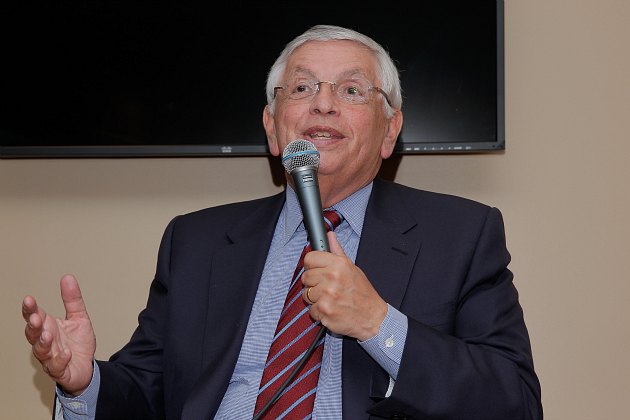
With Billy Hunter now deposed as the NBPA's executive director, the players' union is entering a new era that brings fresh opportunities for reform and improvement. The next executive director, whomever that may be, has a chance to lead a newly unified group of players, build up bargaining power, and bring about positive changes that create a better work environment for NBA athletes.
There are many reasons for the players to be hopeful about this new era. Somewhat surprisingly, commissioner David Stern, a man who works against the union in every labor battle, is also excited. From an appearance on Duke head coach Mike Krzyzewski SiriusXM radio show, which is apparently a thing (via TrueHoop):
It’s fair to say that while this matter has been percolating in the union they haven’t been as proactive as they could be on a variety of what we used to call "b-list" issues, for player development, even discussions further with the NCAA about when players should be eligible. A wide variety of things.
We’re looking for a partner that can really make life better for our players, would-be players, sort of the social welfare task of a union, together with growing the game so that everyone prospers.
And then at some future date we’ll argue about how to split up the sum of all of the growth we’ve worked on together. So we see it as a significant opportunity once it gets itself settled down.
Stern makes a good observation. In recent years, the NBPA has been so disorganized and had to deal with enough internal strife that any discussions with owners have either been ineffective or focused on large-scale topics like revenue sharing. A strong union will make discussions over issues like the age limit and drug testing easier, if only because it's easier to hold substantive negotiations with a party that knows what it wants and how to express those desires.
On the other hand, Stern seems to imply that a stronger union will be more inclined to agree with the league office's definition of how to "make life better for our players." Many of these concepts — the necessity of an age limit for any reason other than shielding front offices from bad decisions (which they make anyway), the extent of drug testing and its effects on player privacy, etc. — are open to substantial disagreement. If and when these issues are discussed, it's not as if both parties will agree on the solutions instantaneously.
It's possible (and likely) that Stern is simply trying to get out ahead of negotiations and begin to stake out the "logical" point of view in these arguments — the man has always been very good at setting the terms of debate. For that matter, perhaps Stern views any movement towards resolution as progress because it's better than a state of uncertainty. But no matter what the ultimate goal is here for Stern, it's worth remembering that the likely outcome here won't be rapid agreements on b-list issues. These topics are important to the future of the league, too, and it's likely that they could breed some serious disagreements. A strong union only really guarantees that the players will be better represented in these discussions — the form of negotiation itself remains to be seen.
No comments:
Post a Comment